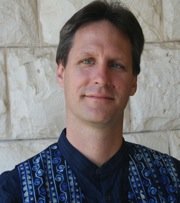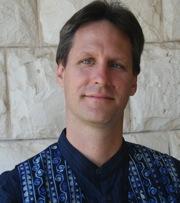Chora Nova sang “Of Loss and Longing” in a performance of music by Felix Mendelssohn and Josef Rheinberger, Saturday night at the First Congregational Church in Berkeley. Mendelssohn was represented mainly by Psalm settings, and his music is eminently singable. His distribution of voices into various combinations is imaginative. Every part of the choir, from soprano to bass, gets gorgeous bits of melody.

The concert began with Psalm 42, “Wie der Hirsch schreit nach frischem Wasser” (As the hart longs for fresh water). The opening lines were sung with Chora Nova’s signature sound — clear, unforced, and grounded in the breath, with no apparent strain or tension — all shaped by elegant phrasing and dynamics, under the sure hand of Artistic Director Paul Flight. Soprano Jennifer Snow followed with a solo section, “Meine Seele dürstet nach Gott” (My soul thirsteth for God). She sings with the same lovely, unforced sound — a pleasure to hear.
The third section, “Meine Tränen” (My tears), is set for tenor solo, in this performance sung by the entire tenor section. It begins with a kind of recitative that, being closer to the declamation of speech than the flow of song, would probably work better with a solo voice. Yet the succeeding aria sounded fine, sung by the impressive tenor section and accompanied by a three-part women’s chorus.
The last section of the Psalm is a choice example of Mendelssohn’s use of voices in the service of the text. It began with all the men singing in baritone range (“Why art thou cast down, o my soul?”), then added the women’s voices (“Hope thou in God”), and ended with the full chorus (“I shall yet praise him”). Accompaniment for the Psalm was provided by a piano reduction of the orchestral score, capably played by Lino Rivera.
“Denn Er hat seinen Engeln befohlen” (For he shall give his angels charge over thee), which Mendelssohn set for double chorus singing a cappella, was later used in his oratorio Elijah. Chora Nova gave it a lovely, fluid performance. Psalm 43, “Richte mich, Gott” (Judge me, o God) is a much more dramatic piece, and the chorus was fully up to it. My only quibble with the performance of this piece would be that there are spots that should be less legato, more declamatory.
Mendelssohn spent some time in England, and set for his English audience an English paraphrase of Psalm 55. It was popular in that country but unintelligible in the lively acoustic of the Berkeley church, except for people who knew the Psalm. I caught “O for the wings of a dove” because it was already familiar to me. Psalm 55 is one of the gloomy Psalms (“If I had the wings of a dove I would fly away from this wicked, conflict-ridden world”). Karla Sagramoso was the soprano soloist. Christopher Putnam played the church’s magnificent organ for this piece, and joined a quintet of string players for Josef Rheinberger’s Stabat Mater at the end of the program.
Range of Emotions
The second half of the concert was devoted to Rheinberger, who was born into the next generation after Mendelssohn. Rheinberger was a highly esteemed teacher, and noted as a composer of both sacred and secular music. His setting of Eichendorff’s poem “Die Nacht” (Night), with accompaniment by violin, viola, cello, and piano, is well-suited to Chora Nova’s lyrical sound.
Four motets, in Latin, for six voices show Rheinberger, like Mendelssohn, creative in the distribution of voices. Every part has something lovely to sing, and the chorus responded lovingly. They also showed that they could produce a forte with as little strain as a mezzoforte.
Rheinberger’s setting of the Stabat Mater (The sorrowful Mother stood) follows the full run of emotions, from the violence, suffering, and lamentation of the Crucifixion through support for the Mother and fealty to the Son and the hope of resurrection. The last section, “Virgo virginum praeclara” (Virgin peerless among virgins), began with a striking unanimous theme and ended in a blaze of sound.
This ending section, impressive as it was, was still not good enough for Paul Flight, who encored it for the large, appreciative audience. The concert was being recorded, and he wanted a few errors corrected. This move explained several false starts earlier in the program, causing Flight to stop and restart. Some of the stops were for problems that were not apparent to most of the audience.

